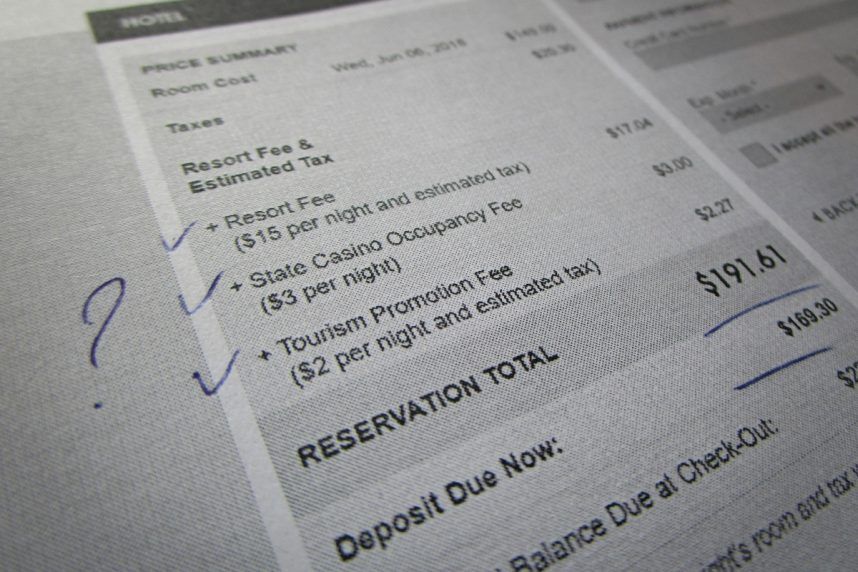Hotel Fees Transparency Bill Passes US House, Books Stay in Senate
Posted on: May 1, 2025, 09:47h.
Last updated on: May 1, 2025, 09:56h.
- The Hotel Fees Transparency Act has passed the US House
- The bill would require casino resorts to include resort fees upfront
- The US Senate is now reviewing the measure
Congressional legislation to require hotels and other providers of short-term lodging to include certain price information upfront when displaying reservation rates has passed the United States House of Representatives.

Federal lawmakers in Washington, DC, have for years been trying to force hotels and casino resorts to stop what they allege to be deceptive pricing. House Resolution 1479, the 2025 version of the Hotel Fees Transparency Act, is the first hotel fee legislation to pass a chamber of Congress.
HR1479 cleared the House on a voice vote, with Speaker Mike Johnson (R-LA) saying the measure passed with more than two-thirds in the affirmative. On Wednesday, the bill was read twice in the Senate and placed on the Senate Legislative Calendar, which means it’s ready for consideration on the full chamber floor.
Doubling Down Against Deceptive Pricing
HR1479 was filed in February by Rep. Young Kim (R-CA) with co-sponsors Reps. Kathy Castor (D-FL), Russell Fry (R-SC), and Kevin Mullin (D-CA). Reps. Craig Goldman (R-TX), Eugene Vindman (D-VA), and Andre Carson (D-IN) have since signed on as co-sponsors.
HR1479 would make it a law that hotels and casino resorts like those on the Las Vegas Strip include all service fees in addition to the base nightly rate for a guestroom. For more than a decade, US consumers complained about not being told the true price of a room until the booking is completed.
In the casino industry, resorts often advertise one rate that becomes considerably more expensive once a nightly resort fee is tacked on toward the end of the reservation process.
In December, the Federal Trade Commission (FTC) passed its “Junk Fees Rule” that required live-event ticketing and short-term lodging providers to include all fees aside from taxes in the upfront advertised price. The federal bill now with the Senate would make it a crime for hotels not to oblige.
As families struggle to make ends meet, deceptive fees only add more pain,” said Kim. “I’m thrilled the House passed my bipartisan bill to improve cost transparency, ensure fees are publicly listed, and stop misleading advertising.”
HR1479 would not mandate that hotels include taxes and/or fees “imposed by a government or quasi-government entity.” Charges for optional products and services that may be purchased by a guest, such as parking, are also immune.
Las Vegas Compliance
MGM Resorts, the largest operator of hotel rooms on the Las Vegas Strip, has already updated its online booking platforms to include nightly resort fees in the upfront advertised price.
For a two-night stay this weekend, May 2-4 at the Bellagio, the MGM website shows an average room rate of $436, plus a $55 daily resort fee that brings the total nightly price to $491. The price also clearly displays that the rate excludes taxes.
Caesars Entertainment, however, continues to keep resort fees hidden during the initial booking stage. For a two-night stay at Caesars Palace, the Caesars website advertises a nightly room rate of $299. The messaging, “Excludes fees and taxes,” is displayed, albeit smaller than MGM.
After selecting the Caesars Palace room and coming to the payment section, the nightly rate updates to $353.95 after the resort fee is included. With taxes, the total stay comes to $802.62, or $401.31 a night.
No comments yet